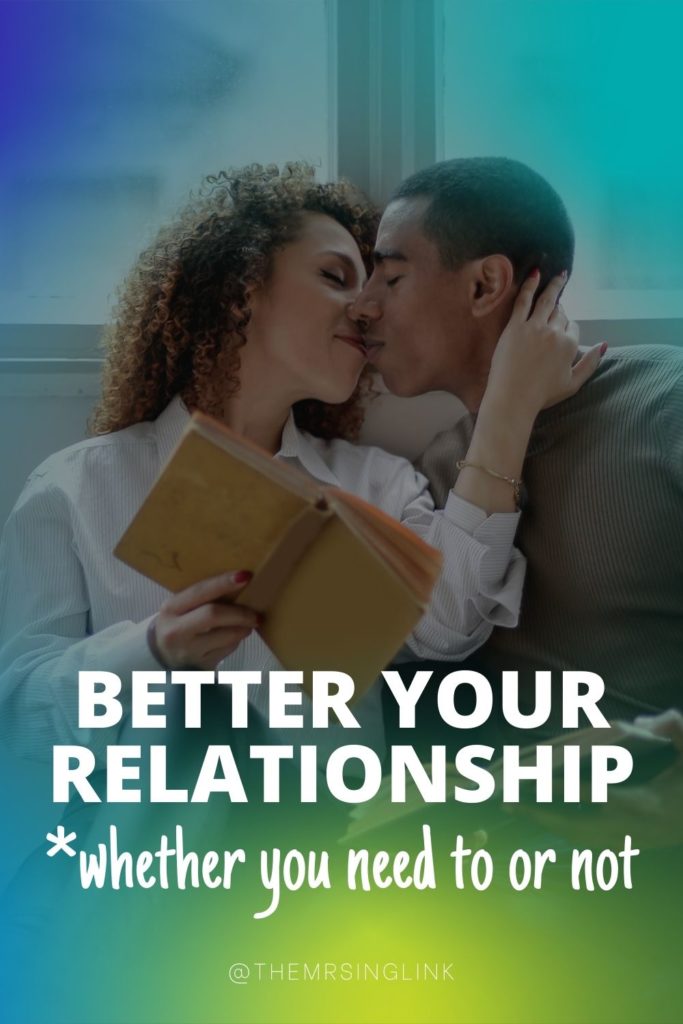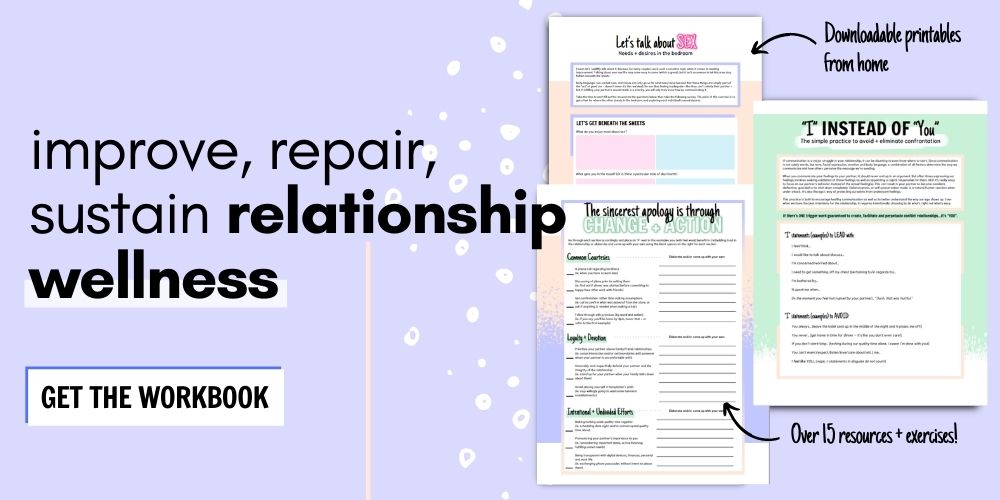If the title of this post brought you this far, you were likely thinking:
A. “Um, duh, yeah! Let me see if there’s anything new I can take away from this.“,
B. “Hm, interesting, this is new to me – I need to know more!“
or
C. “Uh, why should I “fix” something that isn’t broken? Let me debunk this.“
Otherwise, please do fill me in on your thoughts on this title, I’m curious. But over the years I have self-discovered, gone back and forth, and changed my mind a lot on what “society” – *cough media cough* – teaches us about relationships. And sure, what works for one won’t for another, but I think overall there’s a misconception about the way relationships actually work. That,
- We’re just supposed to be able to put something (anything) into it and expect to reap all the benefits.
- That relationships (healthy, happy, sustainable ones) are simply an End-goal, that once you reach a certain point you can sit back, relax and maybe even take a nap from all that “hard work” put into getting there (let’s call it Retirement).
- And, ultimately, that “happy” relationships don’t need “work”, and shouldn’t need work, because it’s *simple*: happy relationships are “organic”.
So I think it’s important to acknowledge and become more aware of relationship reality – without all the stuff to make it look pretty and extra comfy with fluffy pillows, chirping birds, and smells of spring meadows. I’m tearing away the down comforter as to why you should always be improving your relationship even if you don’t feel the need to.

Better your relationship whether you need to or not
Change is inevitable – neglecting it can be detrimental
If my husband were to decide, “You know what, I’m happy, we’re happy where we’re at – I know my wife, I know who she is and she knows me – no need to keep the wheels unnecessarily turning here,” do you know what’s going to happen 5, 10, 15 years from now? He’s going to [best-case scenario] realize what worked before is no longer, and hasn’t been, but more than likely he won’t understand what or who changed and why. He’s even less likely to look inward for the answers.
He might say, “We were happy – what the hell changed?!” <— That dash “-” in that sentence; that’s the X amount of time (the unbeknownst) spent disconnecting from one another. This likely being a conglomerate of behaviors, factors, and changes per individual including but not limited to unmet needs, unresolved conflict, emotional/physical unavailability, lack of self-awareness, lack of attunement, resentment, contempt, jealousy, complacency, reactivity, work/life imbalance, etc.
I’d call this “checking out” of the relationship, but that isn’t really the best phrase because we define that as no longer voluntarily investing in something (so, say, the relationship). But maybe, as human beings, we haven’t considered our ability to unconsciously check out, especially when we’re talking about couples who grow apart or experience disconnection over the course of their relationship. In fact, I’ll bet we check out in our relationships more often than we think or want to believe – happy or not. But it doesn’t mean you aren’t invested or no longer care about your partner and the relationship.
Whether we want it, like it or not, life keeps going, and changes are happening whether we adapt to them or not. As for me, I’m always changing, evolving and growing as not only a human being but an individual – my thoughts, feelings, beliefs and new discoveries on life and about myself, alone. The woman my husband got to know when he met me is nothing like the woman I am now – if I’m being frank.
Granted, I’m still me…but I’m so much more now than then. That being said, couples and partners change, grow, and evolve over time and, well, inevitably (even if it’s “insignificant” or at snail pace) through life. But if you close your eyes or walk in the other direction long enough, when you finally wake up or look to the main path it can suddenly be like waking up on a deserted island with this stranger you once knew.
Sustainment is not the same as “fixing”
You change the oil in your car, right? So that it runs properly. Needing to replace the oil in your car doesn’t mean the car is “broken” – changing the oil is sustainment for optimal vehicle longevity (health).
Oftentimes people think that improving the relationship means fixing something that’s wrong with it. Indeed. But improving your relationship doesn’t automatically equate to existing problems. Proactively strengthening or bettering your relationship doesn’t mean you are creating or surfacing problems that don’t exist, either.
Hence why I believe relationship growth is so undervalued between couples, when in reality, optimal relationship wellness requires taking necessary steps. And even more so when there is resistance, *for example, the partner who finds it annoying when feelings or unmet needs are addressed and communicated.
[*Struggling to communicate with your partner? —> Grab the printable Couples Communication Workbook (*Includes over 25 core exercises)]
Moreover, these steps shouldn’t involve or focus on blaming and correcting things that are “wrong” in the relationship or between partners, but to create a safe, open environment for learning, understanding, and acceptance with the GOAL of striving to be a better partner. This requires each partner to take personal responsibility for what may or may not be positively contributing to the relationship, which can be consequently difficult for many to fully surface.
A “happy”, successful relationship is not an End-goal
Doing “the work” is ongoing. Why? Because relationships are not about some endpoint, final destination, score, grade, or finish line. Relationships are a constant journey. And that journey has no final destination…besides, well, death – death of relationships.
By “achieving” a happy, successful relationship doesn’t mean “the work” suddenly stops. It also isn’t some promotional title that excuses you from doing “the work”, or aspects of it. This is why, to many, relationships [should] never feel like work because it never started out as “work”. We can be honest here – while maybe relationships aren’t considered “work”, they require a lot of effort – some waaaay, far more than others. But in the end, the effort should be worth it, because that makes it the most rewarding.
Relationships are not linear with some faint light at the end of a tunnel – they will have twists and turns, ups and downs, and sometimes you may even lose your way. And as corny as it sounds…for as long as you’re in it together, you’ll get through it together.
